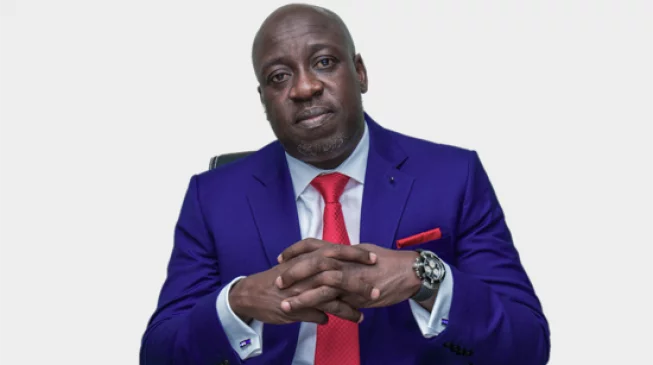Elohor Ogaga: How Do You Know When It’s Time to Stop?


Do I stop trying, or do I take a break? Should I leave this relationship, this job, this city, or am I just exhausted and need to catch my breath? These are deep human questions we all grapple with, and can leave us feeling stuck.
The most significant moments of my life were when I realised it was time to quit. Those moments when I understood I was done trying, finished with attempts, and no longer in the process of fixing or pushing myself. It was during these times that I concluded to stop completely; I found the courage to actually stop and call it quits for good.
But there were also moments when, instead of quitting, I had to pause and take a break. Times when I was overwhelmed, overpowered by thoughts that felt uncontrollable. In those seasons, quitting felt like the only option, but in truth, all I needed was to pause.
Determining whether it’s time to stop or just take a pause can feel like a rollercoaster ride. The challenge arises when you mix the two—quitting when you should pause, or pausing when you should quit, can lead to negative consequences. The distinction between the two can be unclear, making it difficult to decide. However, it’s essential to move with clarity and recognise the signs. I’ve learned strategies over time to help anyone navigate the question of whether it’s time to quit or simply take a break.
Understand your emotional and mental state
Before you make any decision, check in with your emotional state. Go beyond the current situational climate and look introspectively. Most importantly, don’t lie to yourself. Are you burnt out? Numb? Resentful? Sometimes, what feels like the end is just your body begging for rest—not resignation. Maybe you’ve just recently overworked yourself to stupor and now your body and mind are paying for it.
Meanwhile, there are other times, those heavier ones, where you’re drowning in dread, carrying sadness like a second skin, or feeling like you’ve slowly shrunk yourself just to keep something going. That might be your cue to let go. Pausing is often restorative. Your heart quietly whispers, “I still care… but I need a minute.” Quitting, on the other hand, is that crystal-clear moment when your gut keeps kicking in, “Nope. This chapter is done. Close the book.”
If nothing changed, could you live with it?
Sometimes we stay—hoping, praying, bargaining. We try to convince ourselves the job will eventually ease up. That maybe he’ll finally listen. That they’ll see our worth one day and act like it. But what if nothing ever changes? Can you live with it?
If your answer is a deep, guttural “No”, that’s your sign. Quitting, in that case, might not be failure; it might be the bravest, most compassionate thing you ever do for yourself.
But if there’s a flicker in you, a sense that time, space, healing, or even perspective might shift things, then maybe what you need isn’t an ending. Maybe you just need a break. A real one. The kind that allows you to breathe and come back to yourself.
Permit yourself to mentally rehearse both options. Imagine walking away. Imagine stepping back for a while. Feel the difference. One will tighten your chest. The other will let you exhale.
Do you need to re-strategise? Realign?
If you made a few adjustments, changed how you present yourself, altered your pace, or approached things differently, would it help? Would it feel lighter? Would you breathe better?
If the thought of re-strategising brings you peace, even just a little, then maybe what you need isn’t an ending. Maybe what you need is space. Time to think. Time to rebuild. A soft, intentional pause where you step away just long enough to see clearly again.
If the thought of reworking things feels exhausting to you, and the idea of tweaking or reimagining still leaves you with that same heavy ache and fatigue, then perhaps it’s not about pausing at all. Maybe it’s about walking away—completely, boldly, and even quietly.
A pause should be accompanied by a sense of hope, a glimmer of “maybe,” or the potential for a solution.
Are you afraid of your truth?
Fear is a shape-shifter. It can sound responsible, but it keeps you from taking the right and best action. Fear can dress up as patience or logic. It can even mask up as maturity. But fear is not a good decision-maker.
Are you staying because you’re afraid to be alone, to start over, to be judged? Or are you quitting because you’re afraid of failing if you stay?
Pause if you’re overwhelmed. Quit if you’re undervalued, drained despite multiple refill efforts and dishonoured. But most importantly, don’t make either decision out of fear. Make it from a grounded place. That might take time to access—and that’s okay.
Be willing to act when the truth shows up
When it comes to the tension between pausing and quitting, it really boils down to this: you have to decide that whatever truth reveals itself, you’ll act on it.
For me, when I get to this crossroad, I pray. And I pray with clarity, not confusion. I say, “God, if this is not it, I don’t want it.” That’s me declaring that I’m ready to take whatever step needs to be taken, no matter how uncomfortable. Because after that kind of prayer, I open my eyes wider. I become more alert. I start seeing what I may have been ignoring—what’s broken, what’s misaligned, what’s been trying to speak to me in silence.
That level of honesty requires courage. The courage to follow through, even when your discovery demands something radical. Once you’ve gathered all the signs, all the emotions, all the clarity, and you finally figure out whether to pause or to quit, you have to act. Don’t freeze in clarity. Don’t stay stuck in what you already know is no longer working.
Most importantly, stop idolising consistency. We live in a world that glorifies showing up, grinding, and persevering. But we’re not machines. You weren’t designed solely to perform; you were created to feel, to grow, to rest, and to rethink.
Sometimes, it’s essential to pause, to breathe, and to recalibrate. There are times when you may need to quit or walk away to reclaim yourself. Neither choice is a failure, nor does it signify weakness. What truly matters is that you act by your truth and prioritise your mental and emotional health, rather than sacrificing it for the sake of false consistency.
The post Elohor Ogaga: How Do You Know When It’s Time to Stop? appeared first on BellaNaija – Showcasing Africa to the world. Read today!.














